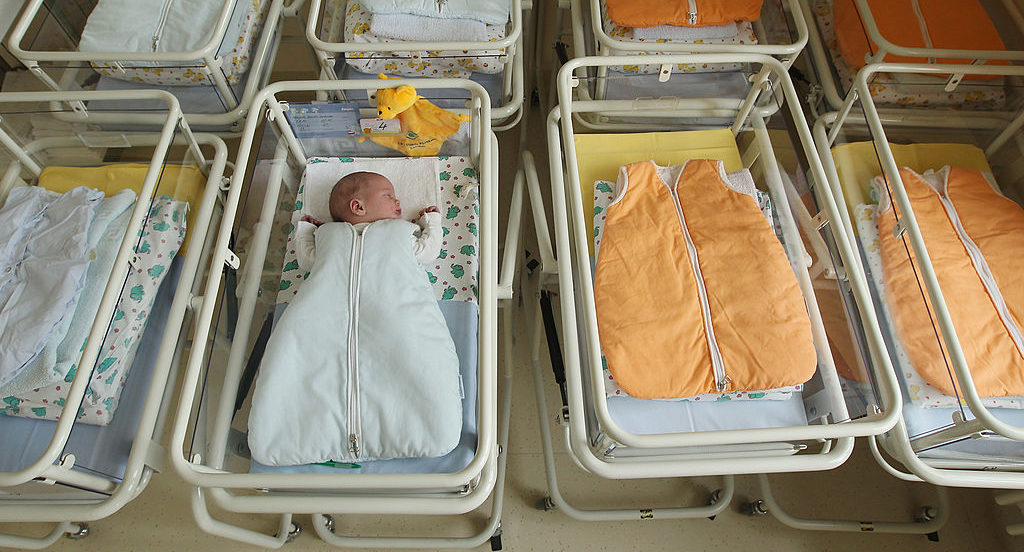As a consequence of lockdown restrictions, three-quarters of NHS trusts are not allowing women to be accompanied by birth partners at scans, throughout labour, and in hospital after the baby is born. Birth partners can be present in the final stages of childbirth, but women must spend most of their labour surrounded by strangers, and their loved ones are whisked away soon after the baby is born.
Women are then left in hospitals that are all too often understaffed, with many new mothers reporting that they didn’t get nearly enough help with basic care for themselves and their newborns. Given all this, it’s little wonder that, as The Lancet reported this week, there has been an increase in births at home or in private facilities since the beginning of this year.
Many expecting parents are angry and unhappy about the current restrictions, pointing out that pubs and gyms remain open while birth partners are still excluded. Some fathers, desperate to be nearby, have had to be discouraged from sleeping in NHS hospital car parks, and one pregnant constituent wrote to the MP Laura Farris that “a friend’s husband has just had to watch the birth of his baby on Zoom.”
Another MP, Alicia Kearns, herself 6 months pregnant, is leading a campaign in the Commons to require all hospital trusts to allow partners to accompany pregnant women. Kearns points out the dismissive attitude taken by many trusts: “there is this sense that childbirth is fabulous and easy — it’s not a disease. Women were doing it for centuries on their own in fields. But birth can be one of the most traumatic events a woman goes through.”
Whatever mythology might have developed around the history of childbirth, we know that women have never routinely given birth “on their own in fields.” Unlike other animals, humans do not give birth alone except in extremis. Childbirth is significantly more dangerous for us as a consequence of our upright posture and resulting narrow pelvis, which means that we have been seeking out kin (usually other women) to help us with childbirth for perhaps five million years. As the anthropologists Karen Rosenberg and Wenda Trevathan write:
Natural selection long ago favored the behavior of seeking assistance during birth because such help compensated for these difficulties. Mothers probably did not seek assistance solely because they predicted the risk that childbirth poses, however. Pain, fear and anxiety more likely drove their desire for companionship and security.
I am no fan of the natural childbirth movement, which in my view tends to either irresponsibly underplay the pain and danger inherent to childbirth, or else take a masochistic attitude towards female suffering. But in this instance, I find myself in agreement with the idea that breaking too aggressively with the past is unwise.
In early modern England, for instance, the expectation was that women would give birth at home, assisted by female relatives, neighbours, and a local midwife who they personally knew. Following birth, they would then undergo a ‘lying in’ period, during which they were cared for by other women, gradually transitioning back to normal activity until the formal ceremony of ‘churching’, in which a women was led from the birthing chamber to the parish church, veiled and accompanied by her womenfolk.
We mustn’t romanticise a historical period that saw shockingly high levels of infant and maternal mortality. It’s a good thing that most births now take place in hospitals, with life-saving technology on hand. But at the same time, we risk straying too far from older childbirth practices that were more accommodating of women’s evolved instincts. Hospital trusts may think that trained midwives and doctors are far superior to incompetent family and friends, but we know that women not only want, but need, familiar faces around them during birth and after. These restrictions are not only nonsensical, but they are also cruel.











Join the discussion
Join like minded readers that support our journalism by becoming a paid subscriber
To join the discussion in the comments, become a paid subscriber.
Join like minded readers that support our journalism, read unlimited articles and enjoy other subscriber-only benefits.
Subscribe